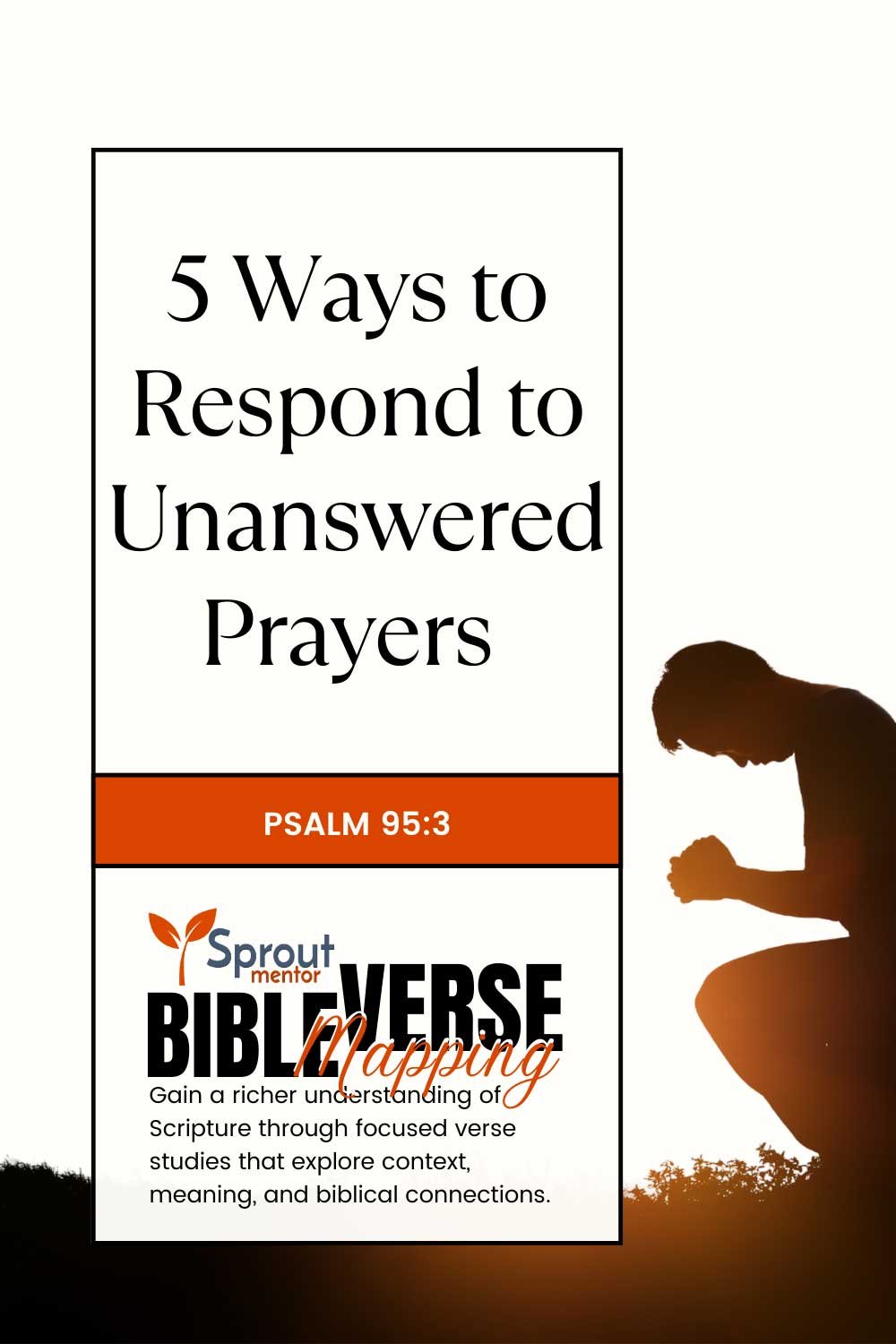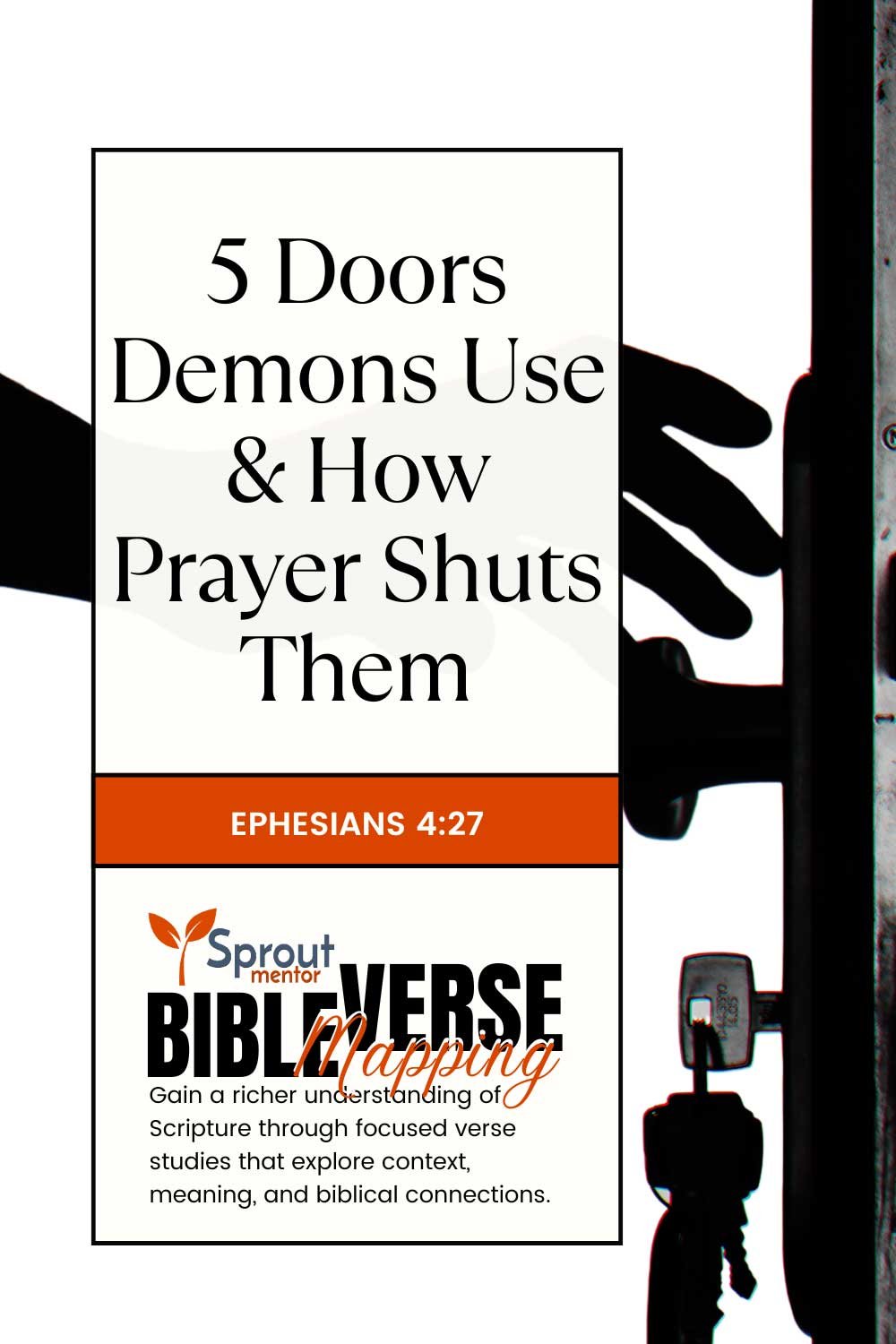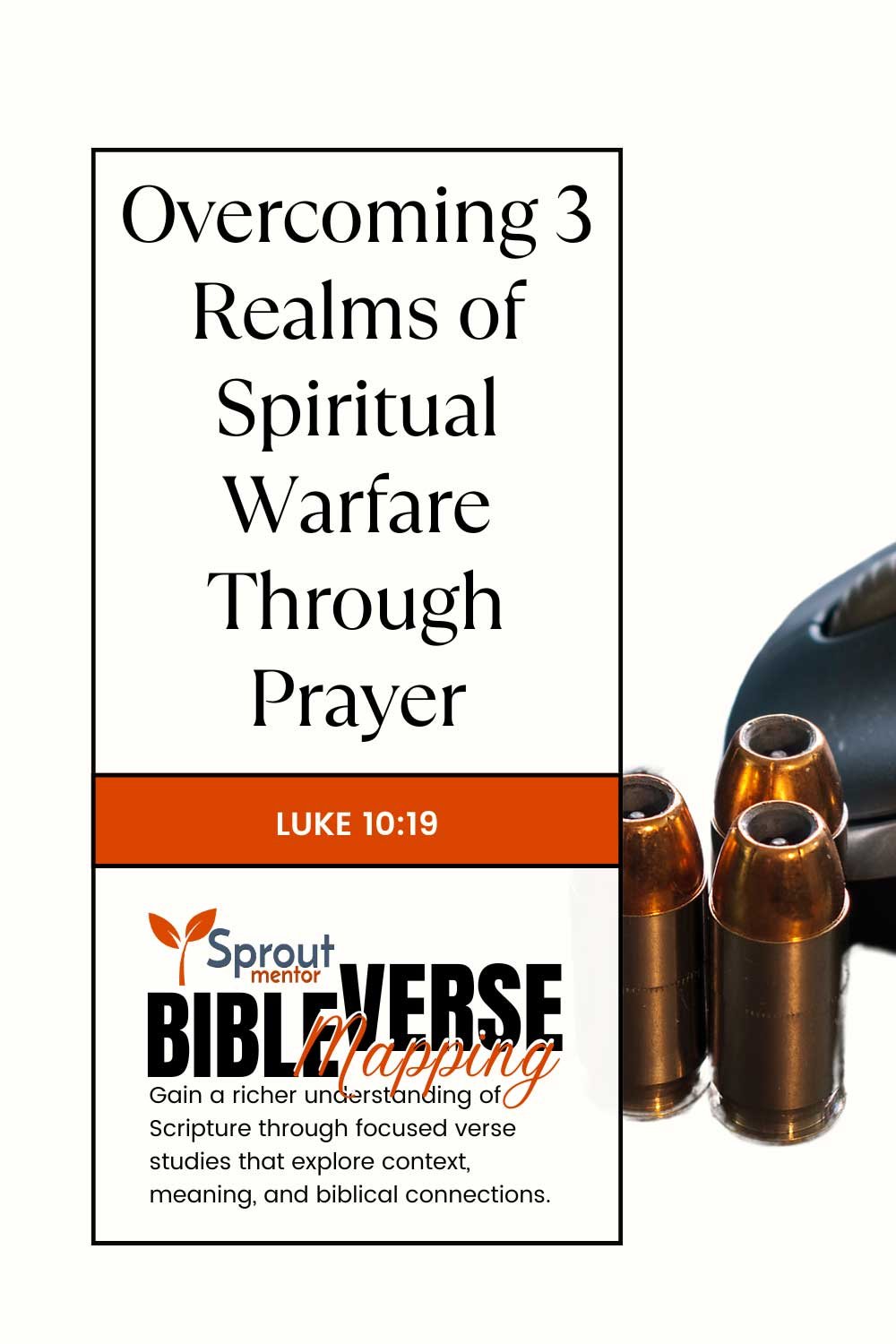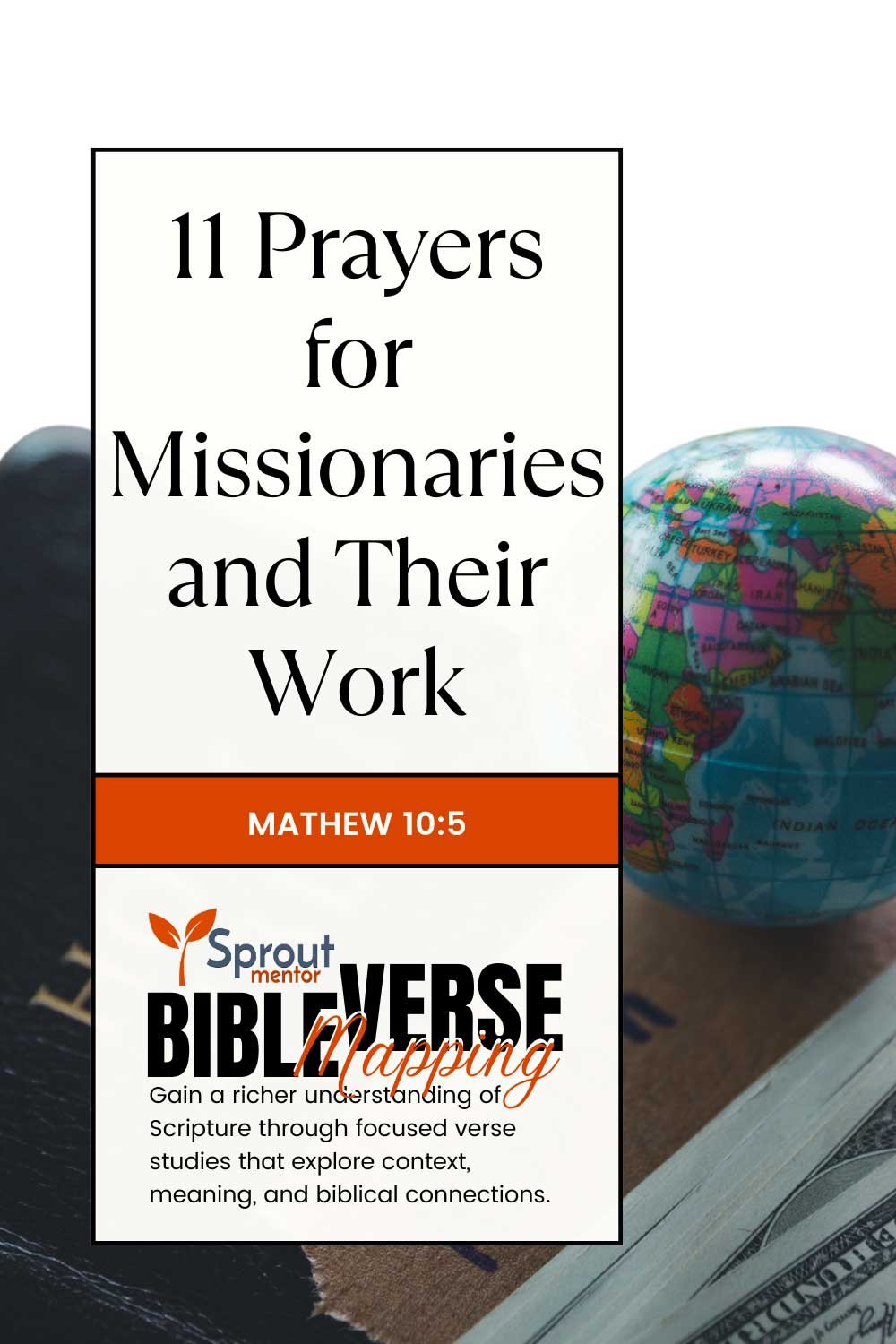5 Ways to Respond to Unanswered Prayers (Psalm 95:3)

Share This Blog Post On:
Short on time, but big on faith? We break down complex topics into easy-to-understand chunks, making the Bible accessible to everyone. Join us for answers to your Bible questions and encouragement for your daily walk with God. Click here to grow your faith, one byte at a time!
“For the Lord is a great God, and a great King above all gods.” (Psalm 95:3, KJV)
God is king with absolute sovereignty. This means He cannot be commanded or manipulated. Isaiah 55:8-9 reminds us, “For my thoughts are not your thoughts, neither are your ways my ways, saith the Lord. For as the heavens are higher than the earth, so are my ways higher than your ways, and my thoughts than your thoughts.” This fundamental truth explains why we cannot treat prayer like a spiritual vending machine, expecting immediate responses according to our timing and specifications. God’s sovereignty means He responds according to His perfect wisdom and timing, not our demands. Given this spiritual reality, this blog post seeks to show five appropriate and Biblically supported divine responses for handling seasons of apparent silence from heaven.
Response One: Persistence
The persistent widow teaches us the power of consistent prayer. Jesus used her story to emphasize that we should “always pray and not give up” (Luke 18:1 NIV). This persistence isn’t about wearing God down; rather, it demonstrates our faith and dependency on Him.
Like Bartimaeus, the blind beggar in Mark 10:46-52, we are to cry out for God’s mercy continually. Despite being rebuked by the crowd, Bartimaeus persisted, and Jesus responded to his faith. This teaches us the importance of persistent faith and vocalizing our need for God’s mercy.
Response Two: Waiting
David’s psalms frequently express the challenge of waiting for God’s response. In Psalm 40:1, he writes, “I waited patiently for the Lord; and he inclined unto me, and heard my cry.” Also, Psalm 27:14 urges us to “wait on the Lord; be of good courage, and He shall strengthen your heart.” This teaches us that waiting itself can be an active form of worship and trust.
Like the man at the pool of Bethesda who waited 38 years for his healing (John 5:5-9), we must maintain our faith even in prolonged waiting. This isn’t blind optimism but rather a reminder of the need to remain expectant. Though he waited for 38 years, he never gave up hope. Jesus eventually healed him, demonstrating that God’s intervention can come at any moment. Our role is to maintain a heart posture of faith and expectancy.
Response Three: Self-Examination
James 4:3 reminds us that sometimes “ye ask, and receive not because ye ask amiss.” This isn’t to suggest that all unanswered prayers result from wrong motives, but it encourages us to ensure our prayers align with God’s will.
Respond Four: Worship
Job demonstrated this when he declared, “Though he slay me, yet will I trust in him” (Job 13:15). Worship acknowledges God’s worthiness regardless of our circumstances. Use times of waiting to deepen your understanding of God’s character. Moses experienced this when God told him, “My presence shall go with thee, and I will give thee rest” (Exodus 33:14). Sometimes the waiting period itself is God’s answer, developing our character and deepening our relationship with Him.
Response Five: Fellowship
Share your journey with trusted believers. Paul encourages us to “Bear ye one another’s burdens” (Galatians 6:2). The support and prayers of fellow believers can strengthen us during waiting periods.
In conclusion, when our prayers seem unanswered, it is crucial to trust in God’s perfect timing. Romans 8:28 assures us that “all things work together for good to those who love God.” This means that even in delays or silence, God is working for our benefit. Therefore, maintain a heart posture of persistence, trust, and faith in God’s sovereignty by remembering that:
- God’s delay is not denial: The delay in answering our prayers is not a sign of God’s indifference. Instead, it is an opportunity for growth in faith and character. James 1:2-4 encourages us to consider trials as opportunities for joy, knowing that they produce perseverance and maturity. Romans 5:3-4 also tells us that “tribulation worketh patience; And patience, experience; and experience, hope.”
- God is too faithful to leave you halfway: Lamentations 3:22-23 reminds us of God’s steadfast love and mercy, which are new every morning. This assurance of God’s faithfulness can sustain us during times of waiting.
- God is not deaf: 1 John 5:14-15 assures us that if we ask anything according to God’s will, He hears us. This promise encourages us to align our prayers with God’s will and trust that He hears and will answer in His timing.
- God’s vision is eternal: God sees the end even before the beginning while we see only in part. This means that the greater purpose our individual prayers fit into God’s larger purposes. For example, Joseph’s years in prison prepared him for his role in saving many lives (Genesis 50:20). As Ecclesiastes 3:11 states, “He hath made everything beautiful in his time.”
When facing unanswered prayers, remember that God’s silence often precedes His greatest works. The period between prayer and answer is not an empty space but rather fertile ground where faith grows deeper roots. As you wait, let your prayer life be transformed from a series of requests into a deeper relationship with God. For in the end, the greatest answer to prayer is not the fulfillment of our requests, but the strengthening of our relationship with the One who holds all things in His hands.

Continue Reading More On:
|







